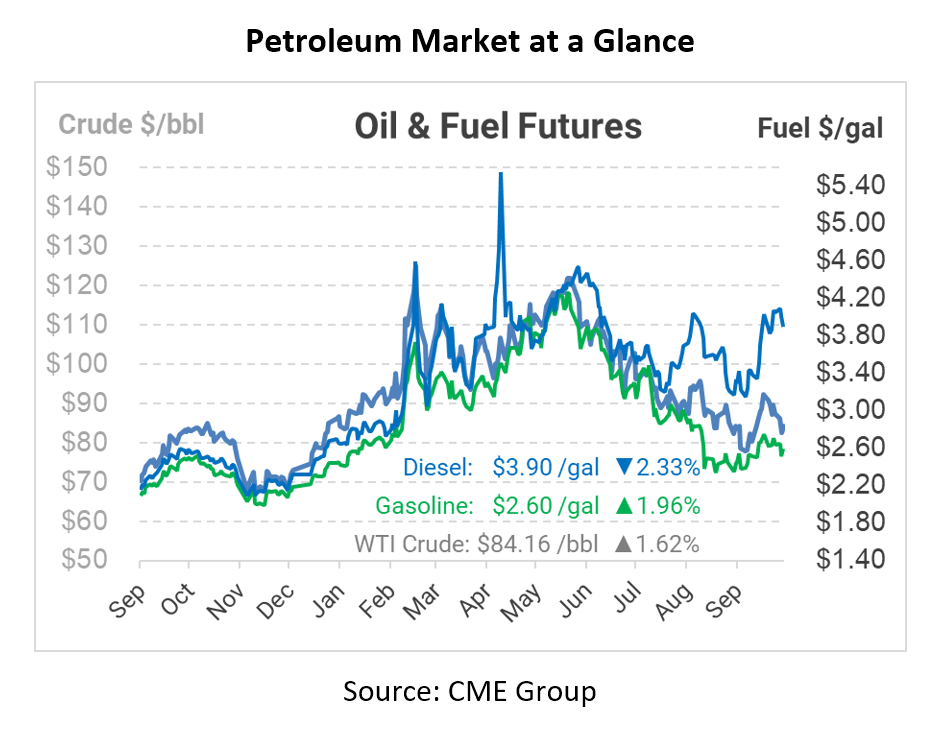
What Is It – NOPEC Act
With oil prices heating up and midterm elections right around the corner, Washington is considering every possible policy action at its disposal to lower oil prices. OPEC’s recent decision to cut oil output in November puts the group in opposition to the White House, who loudly called for more production from the cartel, not less. Now, Congress members are calling for a bill to hold OPEC accountable for raising prices – but the backlash against the US could be harsh. Today, we’ll explore the NOPEC bill, the affect it could have on oil prices, and what consequences could come if it passes.
What Is the NOPEC Act?
The No Oil Producing and Exporting Cartels (NOPEC) Act would apply US anti-monopoly policies to foreign governments, allowing federal courts to prosecute OPEC for market manipulation. First drafted in 2000 and supported by bipartisan coalitions in Congress, NOPEC amends the Sherman Act to remove sovereign immunity of foreign governments in regards to anti-competitive practices.
In effect, NOPEC would allow the US Attorney General (or other interested parties) to sue OPEC member countries in federal court in order to receive damages from monopolistic practices. It’s not clear how federal courts would enforce these legal suits, since the law would not be recognized by international courts. For instance, if the US sued Saudi Arabia, it has no mechanism to force them to pay unless Congress takes the additional action to pass sanctions or other punitive measures.
Would It Lower Oil Prices?
The effect of NOPEC on oil prices is murky. Insofar as the legislation could have a deterrent effect on OPEC members, it might lead them to change behavior and increase production to avoid a lawsuit. For example, some smaller producers might fear repercussions of a lawsuit and choose to increase their production to avoid sanctions or legal action. Larger producers – the ones who really drive oil markets – are resilient enough to shrug off legal action by US courts. Depending on how producers respond, the legislation could even cause prices to rise.
When Was the Last Time It Almost Passed?
In 2007 and 2008, the NOPEC Act grew in popularity as oil prices soared. Both the House of Representatives and the Senate showed overwhelming support of the provision, with the House voting 345-72 in favor of the provision in 2007. The Senate voted for the same provision 70-23 in a separate piece of legislation. All that was left was for the two houses of Congress to reconcile the differences, but a veto threat from former-President George W Bush squashed momentum.
What Other Effects Would It Have?
Many legal scholars have concerns over NOPEC’s disregard for sovereign immunity. Currently, the US cannot sue another country for violating domestic US laws. This precedent could open a dangerous legal precedent – do other countries need to adhere to ALL US domestic policies?
More challenging – would the US be required to follow other countries’ domestic challenges? If we can sue Saudi Arabia, can they sue us for influencing global politics with US aid and military support? This could bring a wide variety of issues, with countries slapping law suits on one another but none having a means to enforce decisions.
OPEC might also retaliate directly, choosing to dump their US treasury reserves and even price their oil sales in a currency other than the US Dollar. Both measures would destabilize US financial markets, and the latter would weaken the US Dollar’s hegemony over global markets. That would be detrimental for the US’s economic and political interests, weakening our ability to sanction other countries like Russia, Venezuela, and Iran.
If the bill was overwhelming effective, disbanding OPEC and causing members to flood the market with supply, it could be detrimental for US oil companies, who rely on a certain degree of market stability to stay in business. The sudden collapse of oil prices – perhaps as low as $40 or below – would certainly put several oil producers out of business. So even if effective, the bill could have some drawbacks for some US interests.
This article is part of Daily Market News & Insights
Tagged: NOPEC Act
MARKET CONDITION REPORT - DISCLAIMER
The information contained herein is derived from sources believed to be reliable; however, this information is not guaranteed as to its accuracy or completeness. Furthermore, no responsibility is assumed for use of this material and no express or implied warranties or guarantees are made. This material and any view or comment expressed herein are provided for informational purposes only and should not be construed in any way as an inducement or recommendation to buy or sell products, commodity futures or options contracts.






